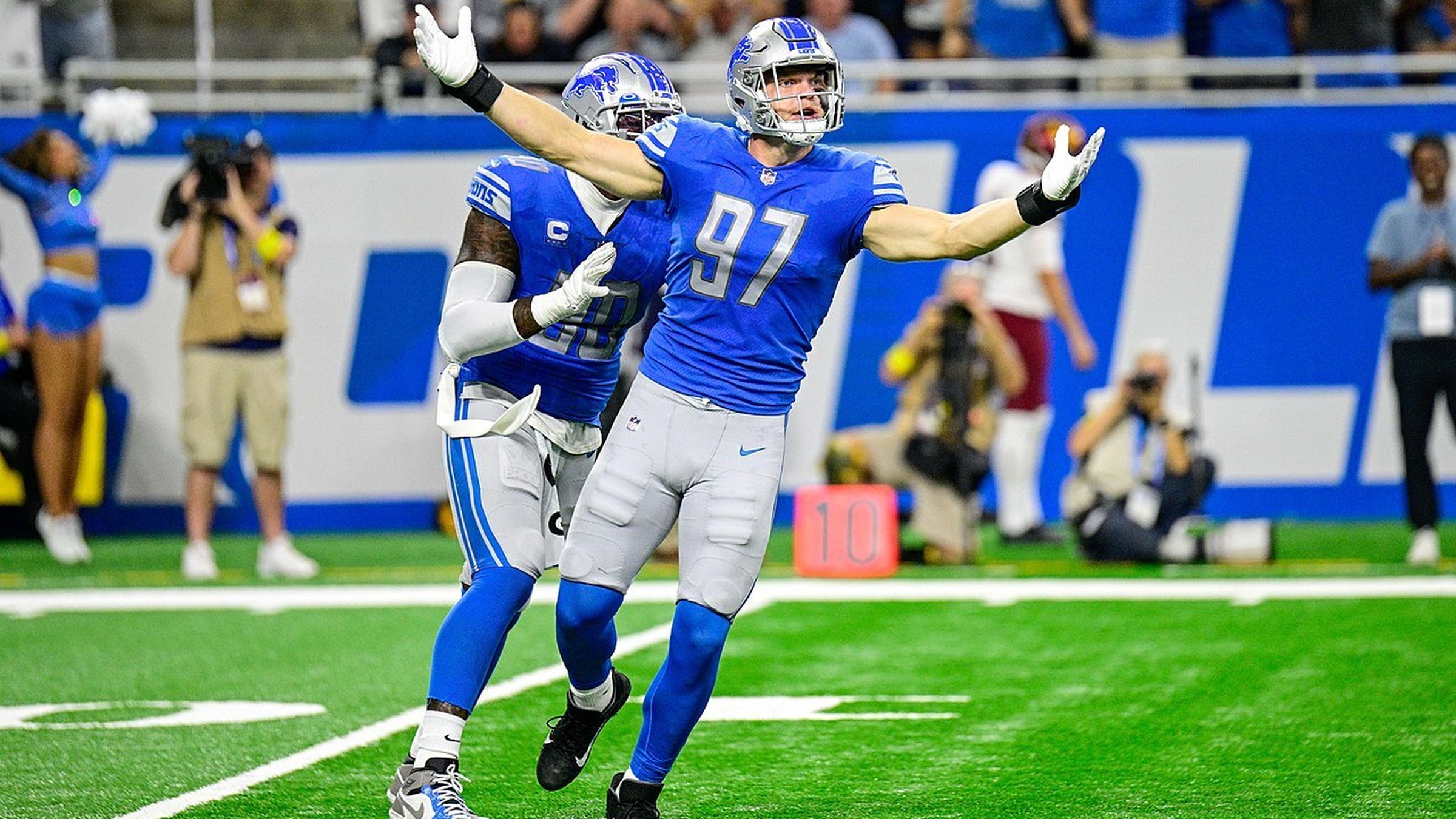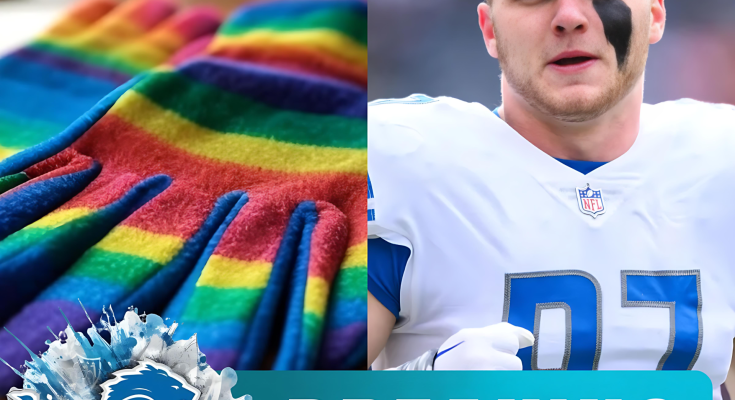
In a move that has sent shockwaves through the sports world, the NFL announced on Tuesday, August 12, 2025, that it has ended its partnership with Stonewall, a prominent LGBTQ+medi advocacy group, and will no longer permit team captains to wear rainbow armbands or other rainbow-themed items, such as shoelaces and wristbands, on the field. This decision, finalized after a closed-door meeting with captains from all 32 NFL teams, marks a significant shift from the league’s previous efforts to visibly support LGBTQ+ inclusion. The announcement has sparked intense debate, with reactions ranging from outrage to cautious support, and Detroit Lions star Aidan Hutchinson has emerged as one of the prominent voices addressing the controversial ruling.
The NFL’s decision to sever ties with Stonewall and ban rainbow imagery comes after years of the league promoting inclusivity through campaigns like “Football is for Everyone,” which partnered with Stonewall to foster acceptance in professional and youth football. The league cited a desire to “streamline” its on-field image and maintain a focus on athletic competition as reasons for the change, arguing that political or social symbols could distract from the game. However, critics have called this explanation insufficient, suggesting that external pressures—potentially from sponsors, certain fan segments, or internal disagreements—may have influenced the move more than the NFL is willing to admit.

Aidan Hutchinson, the Lions’ standout defensive end and a team captain, broke his usual reserved demeanor to address the decision during a press conference following a team practice. Known for his focus on football over public controversy, Hutchinson’s comments carried weight due to their measured yet poignant tone. “This game is about bringing people together,” he said. “For a lot of us, those armbands weren’t just a symbol—they were a way to show teammates, fans, and kids watching that everyone’s welcome here. Taking that away feels like we’re losing a piece of what makes this league special.” While Hutchinson stopped short of outright condemning the NFL’s ruling, his words hinted at frustration, reflecting sentiments felt in locker rooms across the league.
The decision has hit a nerve, particularly for players who have personal connections to the LGBTQ+ community. Sources within the Lions organization indicate that several players were caught off guard by the announcement, having used rainbow armbands and other gear to express solidarity with friends, family, or their own identities. For a league that has prided itself on building a culture of camaraderie, the ban risks creating a sense of exclusion for those who saw these symbols as meaningful gestures of support. Hutchinson’s remarks underscore this tension, highlighting the challenge of balancing personal expression with the NFL’s push for uniformity.
Fan and advocacy group reactions have been swift and polarized. Social media platforms have exploded with hashtags both condemning and supporting the NFL’s move. LGBTQ+ advocates have accused the league of backtracking on progress, arguing that banning visible symbols of support silences an important message of acceptance for marginalized players and fans. Social media campaigns calling for a reversal of the ban have gained significant traction, with some fans vowing to boycott NFL merchandise until the policy is reconsidered. Conversely, supporters of the decision argue that sports should remain apolitical, emphasizing competition over social statements. This divide mirrors broader societal debates, turning what could have been a minor policy change into a cultural flashpoint.
The NFL’s move follows a similar decision by the Premier League, which recently ended its own partnership with Stonewall and discontinued its Rainbow Laces campaign, suggesting a broader reevaluation of how sports leagues approach visible advocacy. Hutchinson’s comments also point to the potential impact on team morale. For a Lions squad with playoff aspirations, maintaining focus amidst this controversy will be critical. Players who wore rainbow gear for personal reasons may feel the ban as a personal slight, even if unintended, which could strain locker room dynamics.
Looking ahead, the NFL faces pressure to demonstrate its commitment to equality through actions beyond symbolic gestures. Hutchinson’s remarks, while diplomatic, suggest a desire for the league to reconsider its stance. “We’re a family out here,” he said. “You don’t tell family they can’t be themselves.” Whether players will find alternative ways to express support—through off-field activism or social media—remains to be seen. For now, the NFL’s decision has ignited a fierce debate about the role of sports in social advocacy, with Hutchinson’s voice adding a powerful perspective to a conversation that shows no signs of fading.
